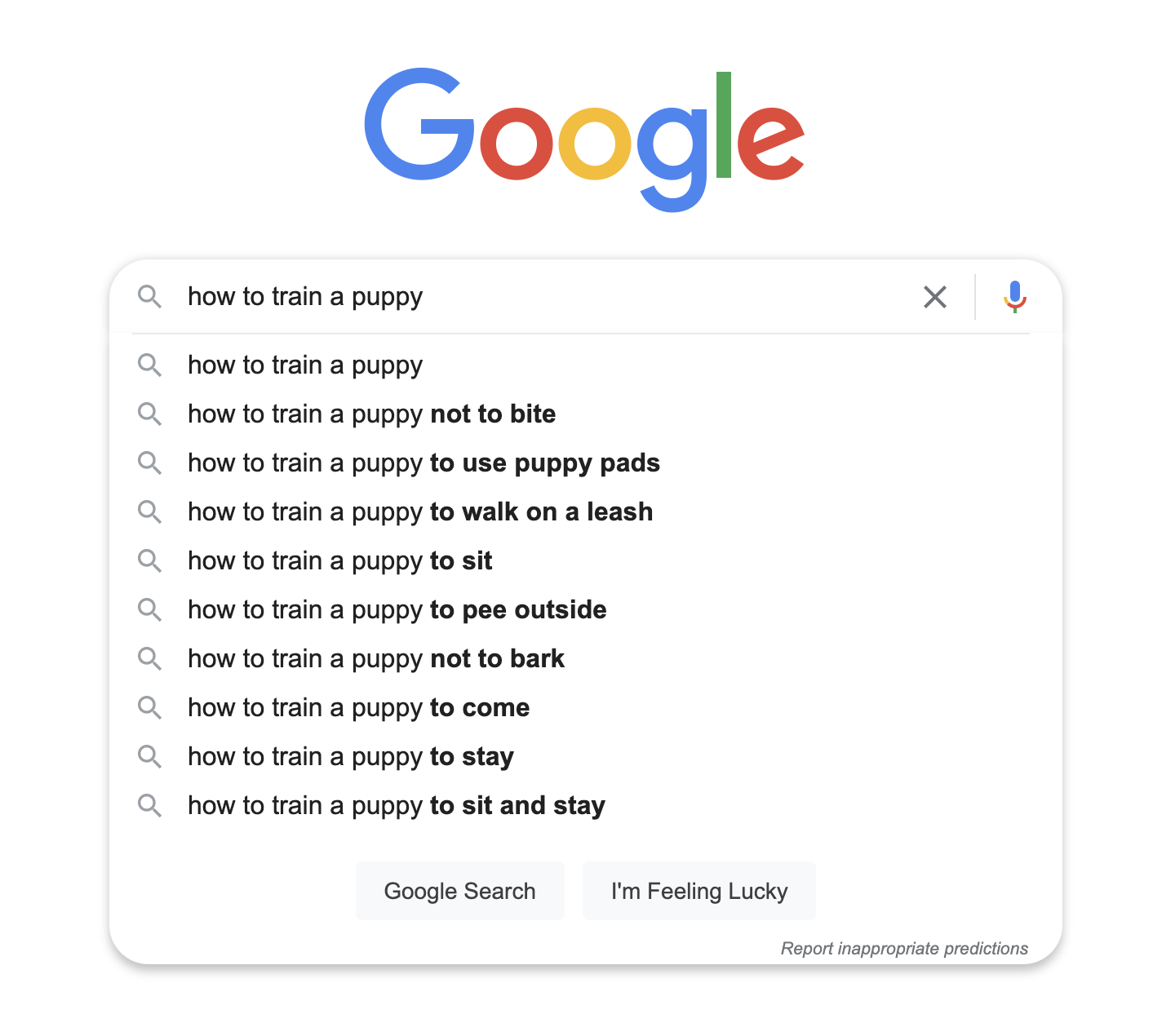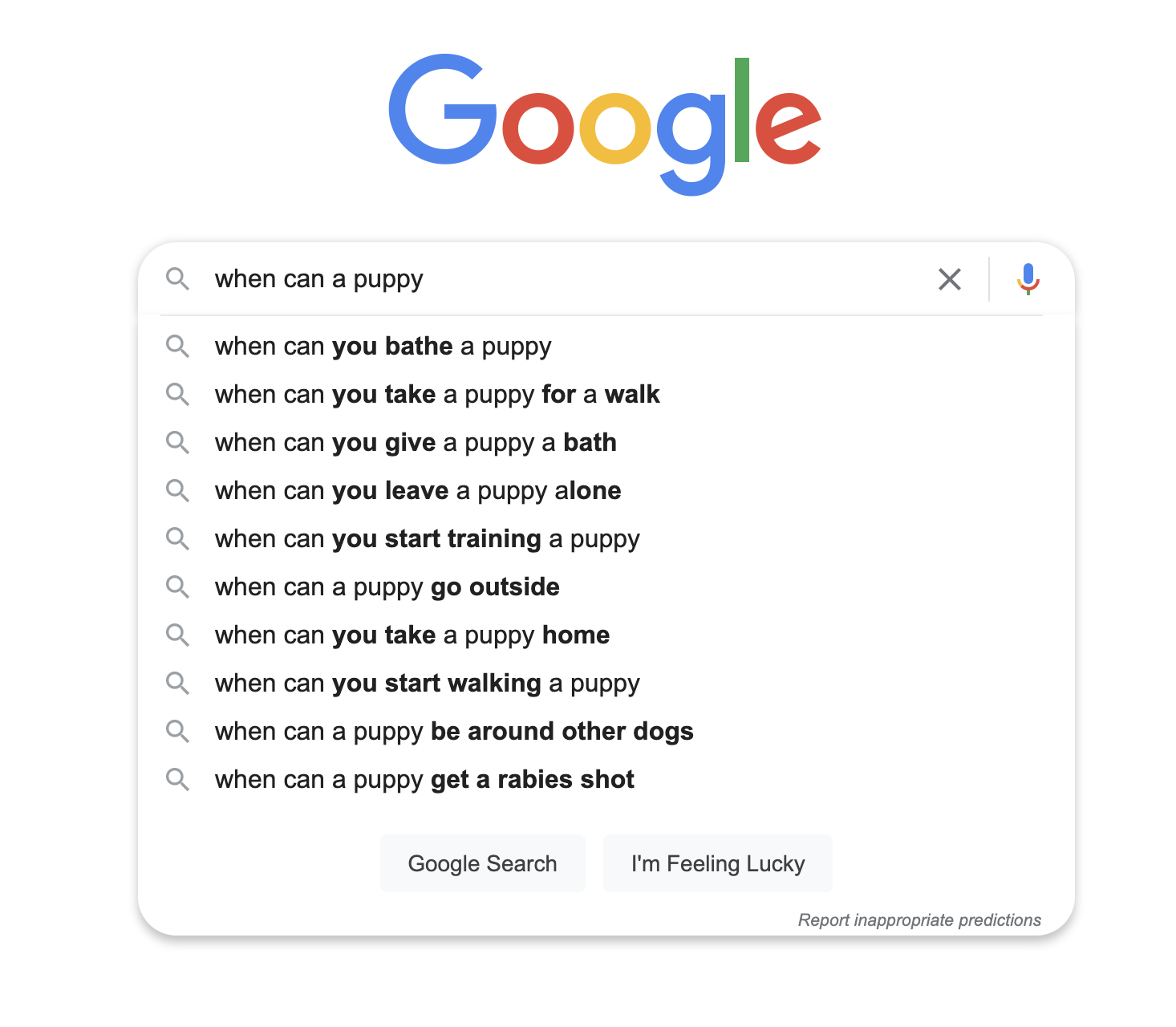When you start a blog SEO is one of the first things that comes into mind.
SEO though is a long term game.
There are more important things to worry about when you’re starting a new blog than SEO.
But…
… that doesn’t mean you should ignore it.
STEP 5: Optimize your new blog for search engine traffic
- Research your competition
- Look for keyword targets with acceptable levels of competition
- Look for keyword targets with acceptable levels of traffic
- Make sure that your keyword targets stay relevant to your niche
- Look for keyword targets that have commercial opportunity
There are a few essentials that you should focus on from the start.
Let’s start with first things first.
You have to know what you’re trying to get your site to rank on the first page of Google for.
So good SEO starts with good research.
You want to find the questions that your readers needs answers to, like I mentioned before.
Google’s autocomplete is a great way to do this easily.
Start typing a phrase, then take a look at what results Google shows you.
Every one of those items listed in the autocomplete options are real phrases that people have been searching for.

This is pure gold!
Use different phrases to formulate your keywords into questions.

One of my favorite tools to do this fast is called Answer Socrates.

This site will pull all kinds of variations of your keyword phrases to show you options for how people are formulating their questions in their searches.
There are four basic rules for quality keyword research.
Acceptable levels of competition
Here’s the thing about new blogs:
It’s hard to beat out experienced competition at first.
So you need to target phrases where there is less competition.
Acceptable levels of traffic
It’s hard to know the exact levels of traffic for any given keyword.
But there has to be at least some traffic.
No need in creating the post if there isn’t anyone who isn’t looking for it.
Keyword opportunities have to be relevant to your niche
“The riches are in the niches”, so it’s been said.
You want to find a niche where there’s opportunity to create content for an underserved audience.
Find a good niche and stay on topic. Don’t start a food blog, then start writing about movies.
Commercial opportunity
This is where a lot of new people get stuck.
They focus way too much on what THEY want to write about and not enough about what their audience is looking for.
Had a discussion with a guy just the other day who’s intent on building a blog on “college football” as a topic.
Not only is the competition extreme to say the least, but there really isn’t a clear or good path to monetize that subject.
So make sure that your niche has enough of an opportunity for you to make some money when you do a good job of serving your audience.
Use relevant images
Images help tremendously when it comes to user experience. Images always enhance content and make your content more sticky.
Add alt tags
Alt text helps describe the image. It tells search engines what the picture represents. So don’t forget to include alt tags.
Optimize titles & headings
Titles and headings are extremely important because they tell visitors what their landing page is all about. Make sure that both are descriptive enough to attract clicks.
Include links
Links are another way to increase visitor numbers. But before adding any link please check whether it already exists somewhere else on your own site.
Create unique content
If you’ve ever read anything online, you probably noticed that most websites follow similar patterns. They share almost identical headlines, subheadlines, body copy, images, buttons, footer texts etc.
This makes it hard for readers to distinguish between different sites. And even worse, it might cause duplicate content issues.
Write original content
If you write something yourself, others won’t be able to steal your ideas. That’s why it’s always better to come up with new stuff instead of just “modeling” what you see others doing.
Be consistent
Consistency is key. Don’t change everything every day. Keep your style and tone throughout your entire site.
Focus on quality over quantity
It doesn’t matter how many articles you publish per week. What matters is that each article has its place within your niche.
Link out properly
Link building is crucial for SEO success. However, linking only back to other related blogs isn’t going to do much. Instead, try creating internal links by connecting one post to another.